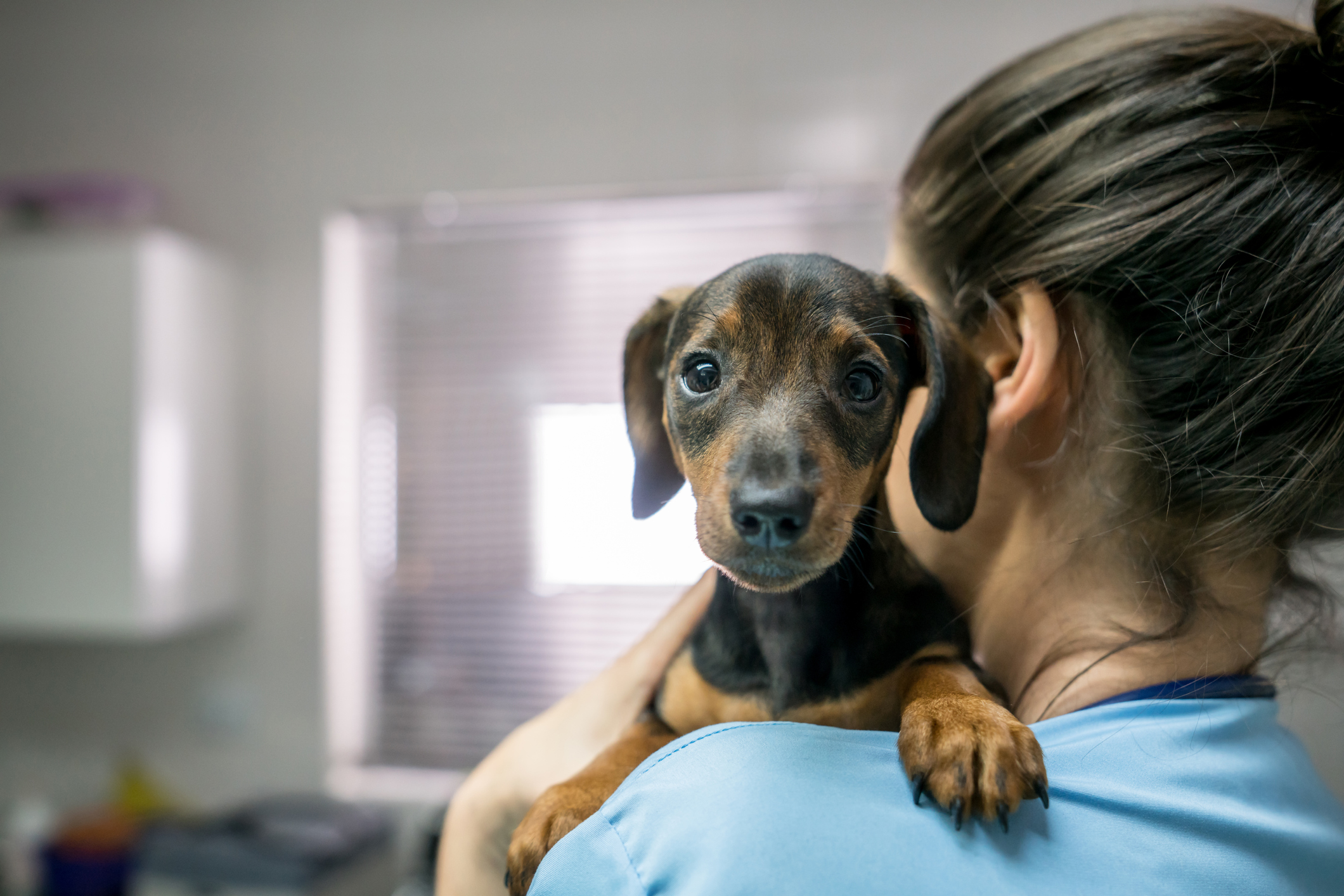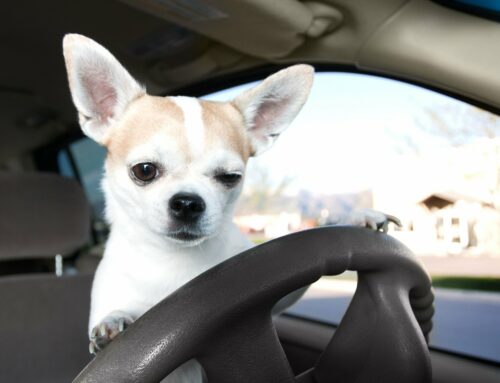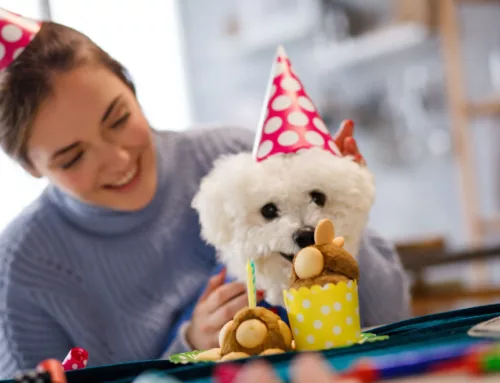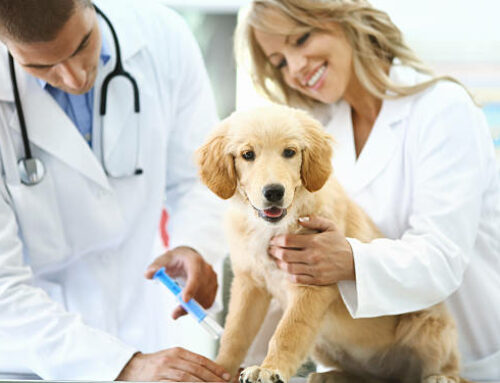Going to the vet is a common fear for most pets. Just like you might not enjoy going to the doctor or the dentist and having vaccinations, you are aware that it is necessary for your health and well-being.
Dogs, however, lack this understanding, which makes the whole experience seem unnecessarily unpleasant.
However, anxious dogs don’t have to be anxious patients. There are lots of tips and tricks to ease this fear and your dog might even learn to enjoy the vet.
Discover our top tips for helping an anxious dog fear less fearful of his/her puppy vaccinations.
Are puppy vaccinations really important?
When you have a nervous dog, going to the vet can be a stressful experience for both you and your dog. It’s never nice seeing your dog anxious or in pain, and it can be tempting to stop going altogether.
However, puppy vaccinations are vital for the health and well-being of your pet. The few anxious minutes at the vets are nothing compared to the problems that can occur from not taking your pet at all.
Puppy vaccinations protect your dog from all sorts of diseases – some of which can be passed onto humans too – so it is essential that you ensure your dog receives the correct medical treatment.
Why are dogs scared of vaccinations?
Does your dog start freezing, salivating and panting when you take him into the vet’s office in fear of getting a painful injection? You are not alone. Countless dogs share the same fear of going to the vet and it’s not unusual for even the largest dogs to become extremely nervous at the sight of a needle.
But what causes this fear?
Negative associations
Your dog might be fearful of the vet because he/she has developed an association with the veterinary surgery and pain.
This means that just the smell of the building can remind your dog of any pain or unpleasant procedures it has experienced before.
To combat this, it is important to bring lots of treats and give your dog lots of fuss when at the vet’s. This will help your dog to build a new positive association with the veterinary surgery. If your dog has learned that the vet’s office is the place where positive things happen, it should be less likely to become a place of fear despite being given vaccinations.
Fear of being handled
Some dogs fear being handled by strangers which can make the vet process uncomfortable for them.
If this is the case for your dog, it is important to set up “fake vet visits” to help your dog become familiar with the staff and feel more comfortable with being handled by them.
Every time your dog’s paws or ears are touched, give a treat to slowly get your dog used to being handled by strangers.
Signs of nervousness
Nervousness can appear in all sorts of ways, so it’s important to be aware of the signs of nervous behaviour so you can reduce it.
The first signs of nervous behaviour are showing the whites of their eyes, turning their head away, lip-smacking/yawning, pinning their ears back and pacing. The second stage is cowering down, panting, salivation, freezing, tucking the tail up high between the back legs, defecation and whining. The third stage is growling, snarling and snapping or lunging to bite.
How to make your dog less fearful of vaccinations
Now that you know what makes a dog fearful of the vets, it is time to discuss some top tips to help ease this fear and help your dog enjoy going to the vet.
Through practice exams, exercise and counter-conditioning, you can teach your dog that vaccines aren’t that scary.
Find a vet who offers home visits
Most anxious dogs feel most comfortable in their own home. If your dog is too anxious to handle a vet office visit, consider a vet who offers home visits.
It’s far better to get medical attention from your home than put it off because it’s too stressful visiting the vets.
However, you have to be careful that your dog doesn’t start making negative associations with your home. Even if you opt for home visits, it is important to work on desensitisation training and make your dog as comfortable as possible. Start by introducing your dog to the vet before they start any check-ups.
Calm your own nerves
Pets pick up on your energy and body language, so if you are showing signs of stress at the vet, it can make your dog even more anxious.
The best thing you can do to help your dog is to try to remain as calm as possible. Take deep breaths, move slowly and deliberately and project calm confidence and your dog will pick it up.
Exercise before the appointment
Physical activity is a common recommendation by vets because it is great for relieving stress and anxiety.
Before your vet appointment, take your dog for a long walk or play fetch in the park for an hour.
Wearing your dog out before a vet visit can help them to feel calmer when they are there.
Practice exams at home
Dogs are often nervous in unfamiliar environments or situations. If this is your dog’s first vaccination or visit to the vet, it can be a good idea to set up a practice exam at home beforehand.
Start practising in short, daily sessions. Handle their ears, look at their teeth, and hold their paws. Make sure to give them lots of praise and treats as you go.
Get the whole family, and trusted friends, involved in this long-term training goal. The more people your dog can tolerate handling them, the better. Make it routine, and over time, veterinary examinations will seem like just another training session.
Use an anxiety aid
If your dog is in the midst of ongoing medical treatment, you might not have the time to build up their vet tolerance gradually.
In this case, there are several anxiety-reducing aids available which can help to temporarily calm your dog’s anxiety.
Some anxiety aid examples include:
- Calming collars
- Pressure wraps
- Herbal supplements
- Pheromone sprays
Medication is also available but this is considered a last resort. It’s better to work on long-term anxiety training instead.
Desensitisation
This is the process of reducing a response by presenting the trigger in its least intense form and gradually building up the intensity over time. This means that the dog only experiences the trigger at a level they can cope with.
For some dogs, that might mean starting at home, before you even get near the vet’s office. For example, if your dog has learned to associate riding in the car with going to the vet, then you’ll need to start before getting in the car.
You can help your dog form positive associations by giving them lots of treats and praise when approaching the car.
Alternative locations
Another great option if your dog is scared of vaccinations and has learned to associate the vet office with vaccinations, you can ask the vet to give the vaccine in the car park.
Your dog won’t have time to be anxious and won’t be expecting it, making it a smooth and stress-free process.
Most vets are willing to accommodate for this, you just need to ask.
Address anxiety in general
Sometimes, there is a bigger issue than just going to the vet.
As well as managing your dog’s anxiety at vet visits, it’s also important to address your dog’s anxiety in general. If you got your dog from a rescue home, you might find that they are anxious because of the way they were treated by the previous owner.
Depending on the root of the issue will determine what kind of solution is best for your dog.
Bay Vets: Puppy vaccinations, pet neutering and more
At Bay Vets, we have established a reputation as a friendly, professional, proudly independent veterinary practice.
We boast a team of highly-experienced, caring vets who are dedicated to ensuring that your furry friend is healthy and happy at all times. Our expertise means that we are recognised in Lancaster, Morecambe, Milnthorpe, Caton and surrounding areas as somewhere other veterinary practices can send particularly difficult cases for treatment.
We offer a range of services including animal vaccinations, dentistry, microchipping, puppy parties and more.
While we are unfortunately not taking on any new customers due to exceptional demand for our services, we do have a waiting list which you are more than welcome to sign up to.
For any queries or questions, please don’t hesitate to get in touch with a member of our friendly team here today.





